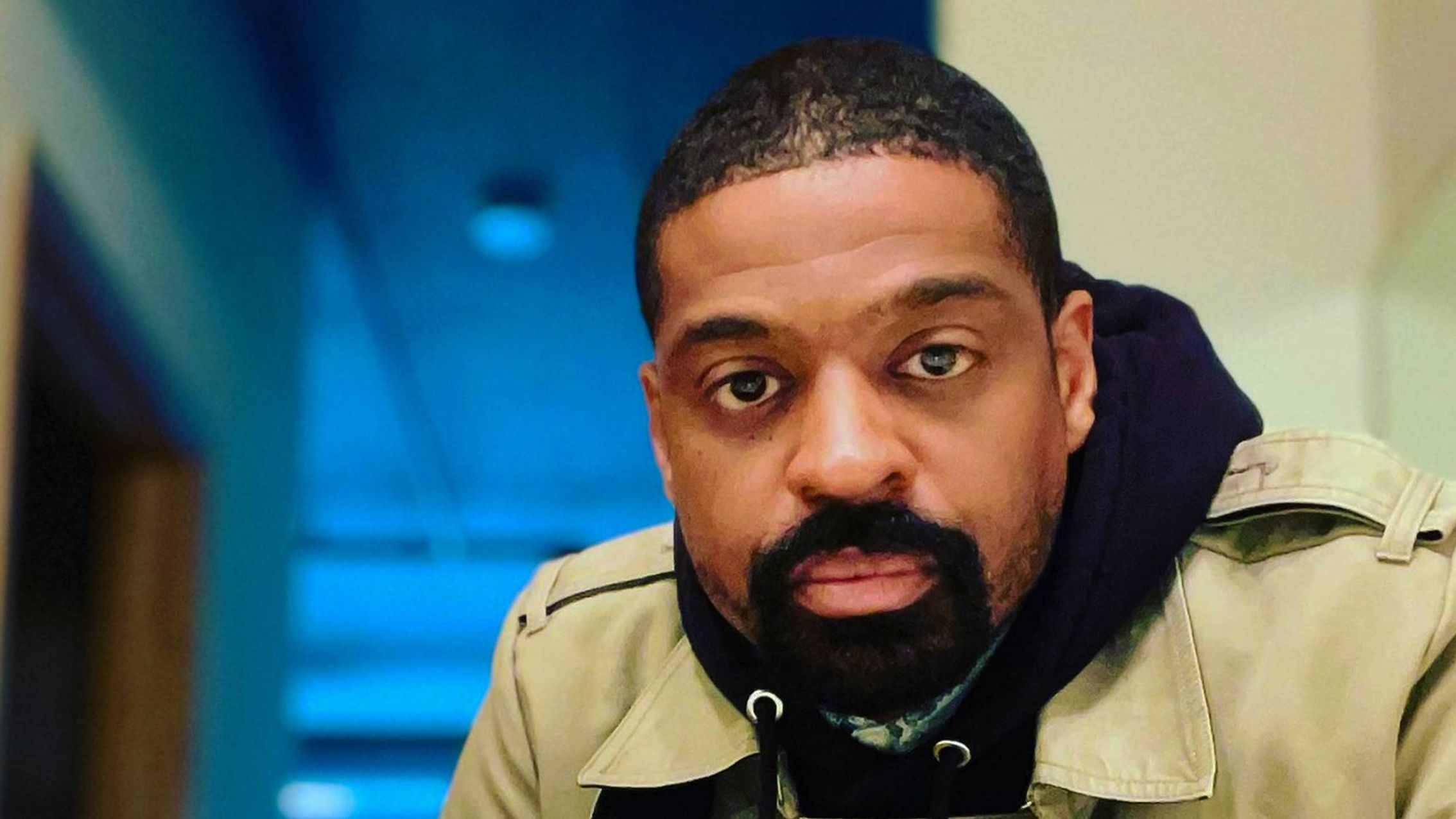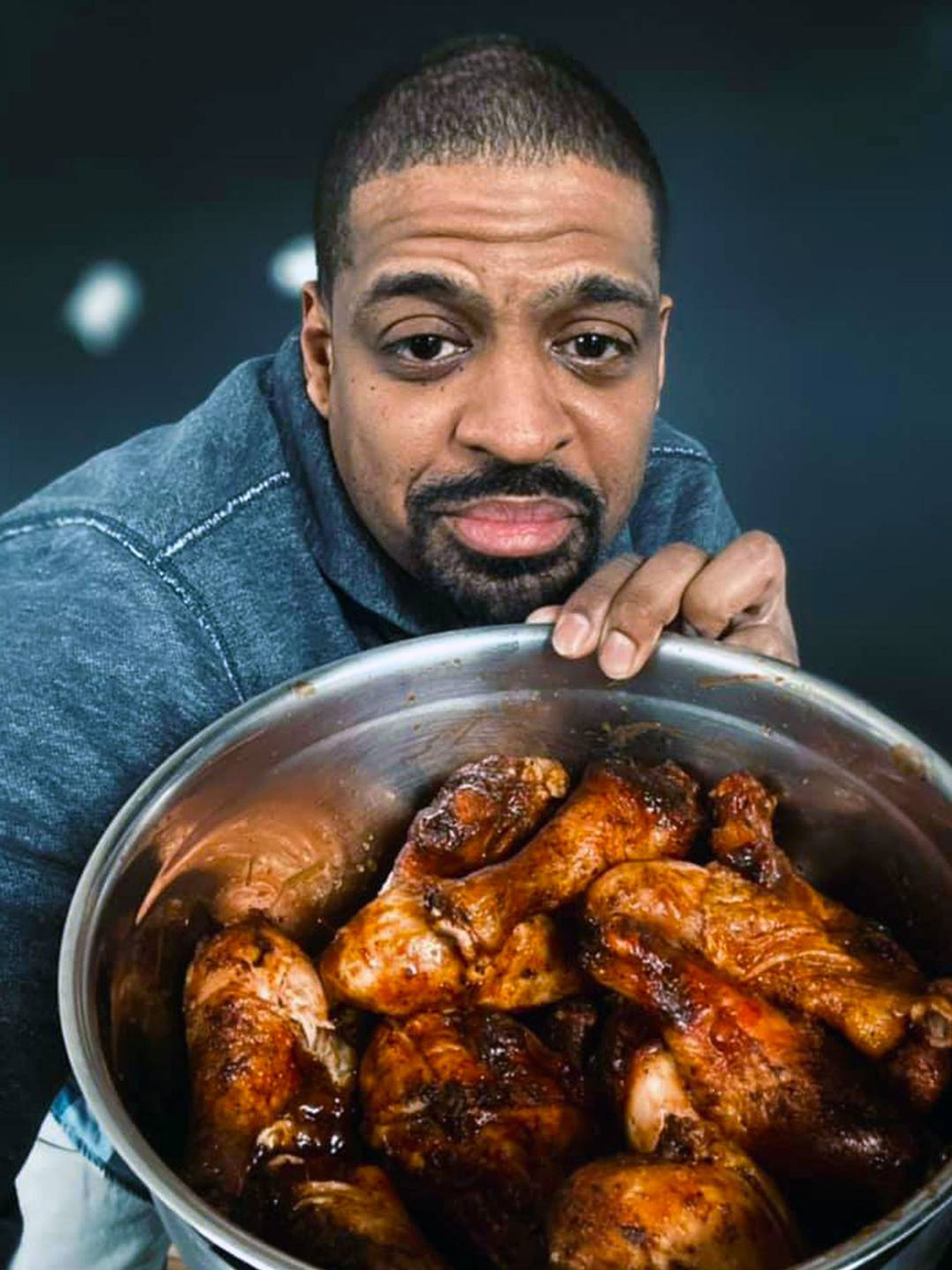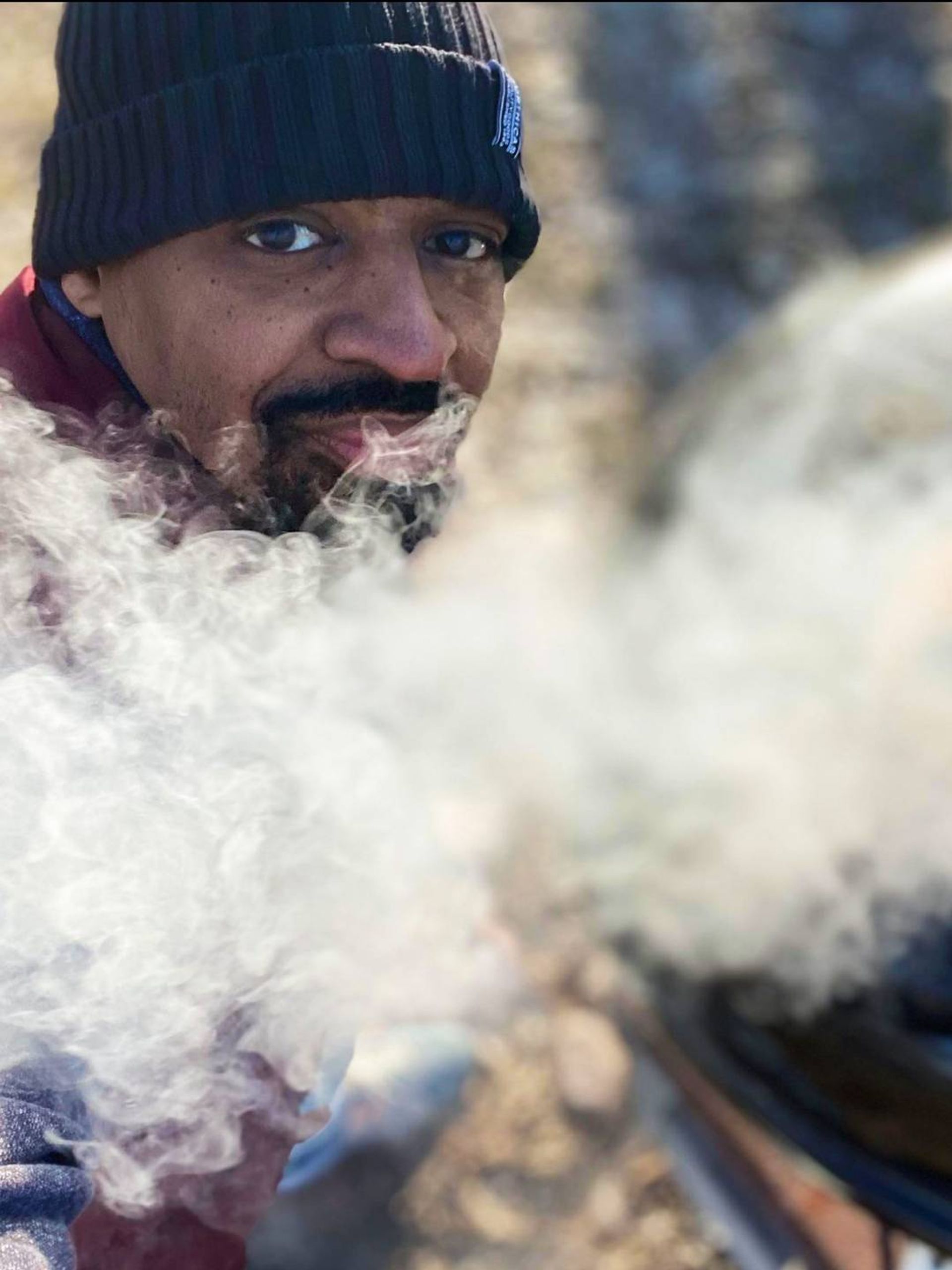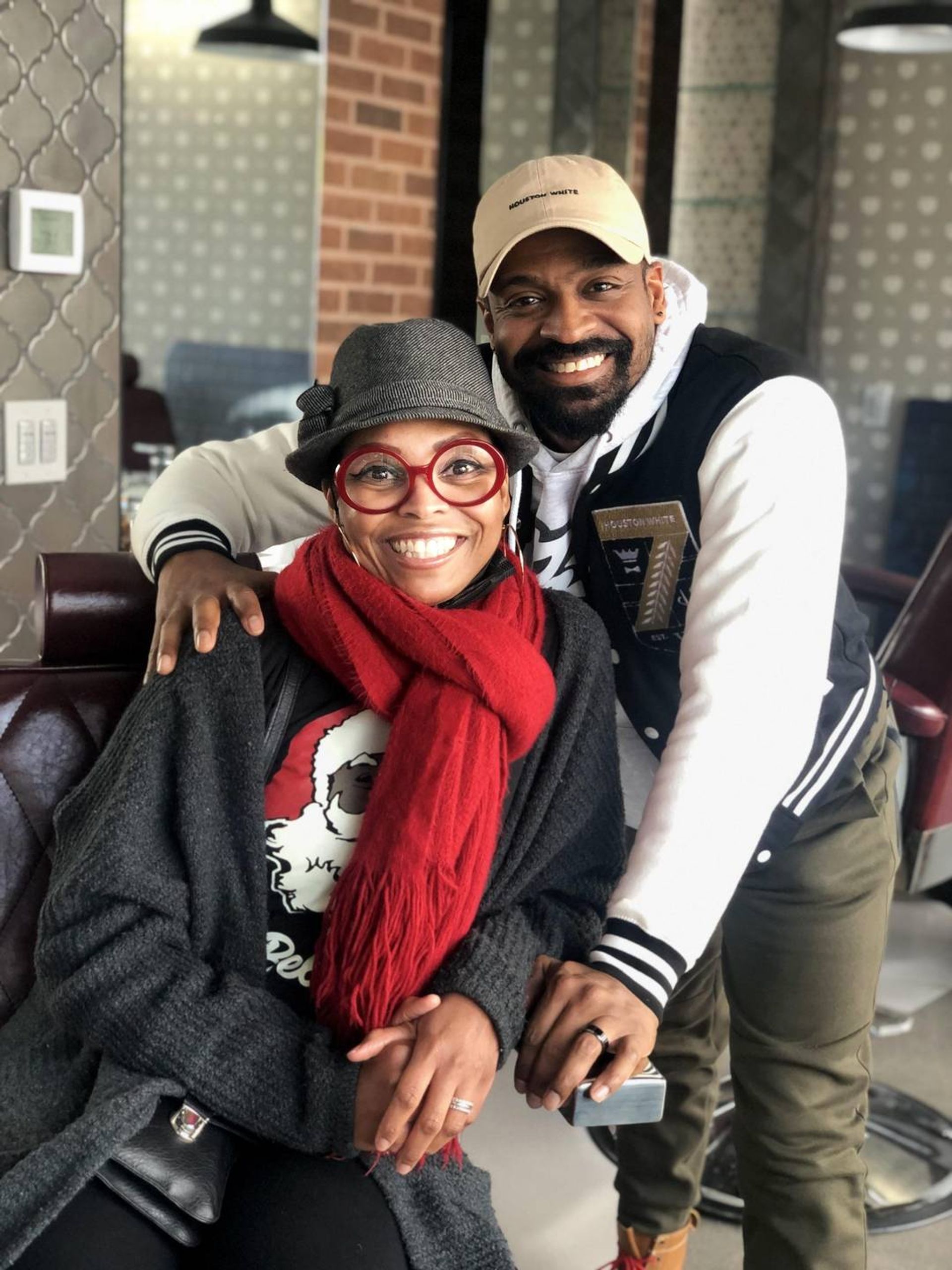Turning Pain Into Purpose: How Sean Burns Is Rewriting the Ending to His Story
One man shares his journey facing addiction and intergenerational trauma, and the steps it takes to turn "pain into purpose."

While the majority of American adults don't have a mental illness (according to the National Institute of Mental Health, one in five adults live with mental health issues, with varying in degree of severity, ranging from mild to moderate to severe), over the past few decades, there have been widespread efforts to destigmatize mental illness across multiple facets of contemporary society. From increasingly common portrayals among fictional film and television characters, to notable, pop-culture figures being candidly outspoken, to increased coverage in media outlets and academic institutions, addressing and acknowledging mental health is mainstream.
Within Black communities, however, there are numerous factors, both internal and external, that compound and exacerbate mental health issues, particularly around chemical dependency and substance abuse. Intergenerational trauma caused by centuries of systemic and institutional racism, the ongoing pressures of second-class citizenship and broad generalization/demonization, along with the stresses of economic and societal disenfranchisement, and a subcultural identity built primarily on survival, has resulted in African American adults being 20 percent more likely to report psychological distress than their white counterparts.
The underlying negative impacts are two-fold. On one hand, those systemic, institutional and internalized racism factors feed the tendency in Black communities to hide, repress, and otherwise avoid open discussion on the all-too-common ailments. On the other hand, many attempts to destigmatize often fall short of addressing the underlying issues, instead simply highlighting the fact that there is an issue. As well-intentioned as these efforts may be, increasing awareness of a problem does little to resolve said problem, much in the same way that merely tagging a social media post with a Black Lives Matter hashtag doesn't alleviate the problems of racial biases and hate crime.

Sean Burns is an educator at Prodeo Academy, a coach with Step with Soul step group, and the entrepreneurial founder of Beaucoup Boil, a pop-up Cajun/Soul restaurant. He's also just recently celebrated 100 days of sobriety and has firsthand experience with mental health issues. I met up with Sean, and his incredible wife, Dawn, at Houston White's The Get Down Coffee Co. in North Minneapolis, to discuss his progress and triumphs, and explore his past processes and current methods, in the hopes that by sharing his story, perhaps we can not only chip away at that stigma, but also provide some insights into rectifying the underlying issues as well.
This interview has been edited for clarity and length.
When did you realize that you had some issues that you couldn't handle yourself, but that needed to be addressed?
Sean Burns (SB): For the first time in my life, I experienced what I call an impactful disappointment. I was attending the University of Wisconsin-White Water. I was trying to get into a fraternity, an African-American fraternity. At the same time, I was a college athlete.
After going through the rigorous processes, I made a decision to drop [the fraternity], and decided to just continue to be an athlete and student. But along with that decision came disappointment within myself. Along with that came disappointment from the African-American community, which on an all-white campus, was very small. So, I began to isolate and began to look for friends in different people, people who didn't look, act, even think like me. I was so frustrated and angry at myself.
I knew that my world was turned upside-down probably three years into my drinking. At that point, it had become a way of not just having a good time, but a way for me to cope and feel, "normal and happy." And then thinking that a degree from White Water was going to make me happier, I said, "Well, this is it. I'm going to quit drinking, quit using. I'm going to really turn my life around. [Moving to Minnesota will] be a change of scenery for me. It's going to work."
And did it?
SB: Well, I stopped for a period of time, and then slowly but surely that uh, "monkey" began to climb up my leg, and then next thing you know, that "monkey" is right back on my back. I kept asking myself, "Why am I allowing myself to drown my sorrows in alcohol and drugs?"

And when the pandemic hit, things really started to escalate. Then I really became alone. Because of the pandemic, you couldn't be around people, you couldn't go to the bars. So I found myself doing it all on my own. Just be in my car, just by myself. Sometimes I would sit there - alone - and just ask, "How does it end? How is this going to end?"
And finally, it did end. It ended because I OD'd.
So, I got into treatment. I did 28 days at Hazelden Betty Ford Center and then I came out, and I'm currently still in IOP, intensive outpatient, and attending AA meetings, sometimes 3 to 4 times a week. I actually lead one now. As of yesterday, it's been four months clean. I'm sober. Making sobriety a lifestyle. Really just trying to show up differently and be the best me. Not just for myself, but for my wife, my daughter, for any and everyone I come across.
There are so many people going through or maybe just starting to go through what you've experienced. How do you explain to them that there's a way out, especially when, in our community, the Black community, there's a strong reluctance or aversion to even broaching the subject? We have that intergenerational trauma that has been with us for so long it has become inherent to who we are as a people, even though it's not who we are as…people. How do we break that cycle?
For anyone who's not ready to [stop using drugs or alcohol], I always ask this question: Has it worked doing it your way? Is what you're doing what you want?
I mean, if this is working, if you really think it's working, the damage and the pain you're causing or feeling or living with, if that's what you really want? But if it hasn't worked doing it your way, then it's time to go. Because when you don't know how to get to a point to feel better, you still know that what you're feeling now isn't good. It's not what you're supposed to be, or what you deserve to be feeling. When you're using, and when you're drinking? You know what that's going to bring. It's going to bring a sense of comfort and feeling fine - for a little while. But then what? It's right back to where you were. And more, it's going to bring on destruction, and more destruction over the long term.
With the pandemic, people have been isolated physically and psychologically, and now they're getting out, in some cases for the first time in a long while. What are some of the steps that you've taken to protect against those temptations?

It's three things. One, my faith. Two, you know movie trailers, right? Trailers get you pumped up. Dawn and I are huge Marvel fans, and every time a new Marvel trailer comes out, I send it to her. Well, I have a movie trailer I play constantly. That movie trailer is the movie of my life, using. In treatment, we called it "Play the Tape Back." And when I play the tape back, that's all I need to see — I don't want to go down that road.
And the third thing that I use is…it's my wife. She came back to me. She came back. Once she asked me what would make me want to go back to using. Nothing. I look at what I had, and what I have, and there's no comparison. Not a damn thing. And if there's something or someone, anything that makes you feel love or loved - even when you think you don't deserve it, when you know you don't deserve it - then you focus on that.
How has your personal journey impacted your professional endeavors?
Through Beaucoup Boil, through Step With Soul, and also even through my marriage and my family, I'm turning pain into purpose. Now that the fog has lifted, I just pray that I can continue to feed both of those ministries. Because that's what they are. Beaucoup Boil and Step With Soul? They're ministries. Cooking feels good, and the food tastes good, but I'm more about how is this impacting you in conversations and giving you an authentic experience?
It's all about creation and making people feel good and impacting the community.
RESOURCES:
For those who want to make a change:
Elite Recovery is an Intensive Outpatient (IOP) and Outpatient (OP) addiction treatment program based in the Twin Cities offering integrated treatment to adult men struggling with substance abuse and mental health issues. Call (612) 719-4137, or visit eliterecoverymn.com
The Avalon Sober House provides a safe, secure, supporting environment for men in recovery. Call (651) 491- 5636 and ask for Joe, or visit theavalonsoberhouse.com
Black Emotional and Mental Health (BEAM) is a training, movement building and grant making organization dedicated to the healing, wellness and liberation of Black communities. BEAM envisions a world where there are no barriers to Black healing. Visit www.beam.community
Therapy for Black Girls is an online space encouraging the mental wellness of Black women and girls, including a referral tool to find a therapist in your area. Visit therapyforblackgirls.com
T. Aaron Cisco is a cultural essayist and author. His last two books, Rod String Nail Cloth: An Afrofuturist Mixtape, and Black Nerd Blue Box, have reached the top five on both Amazon's Top 100 lists.
